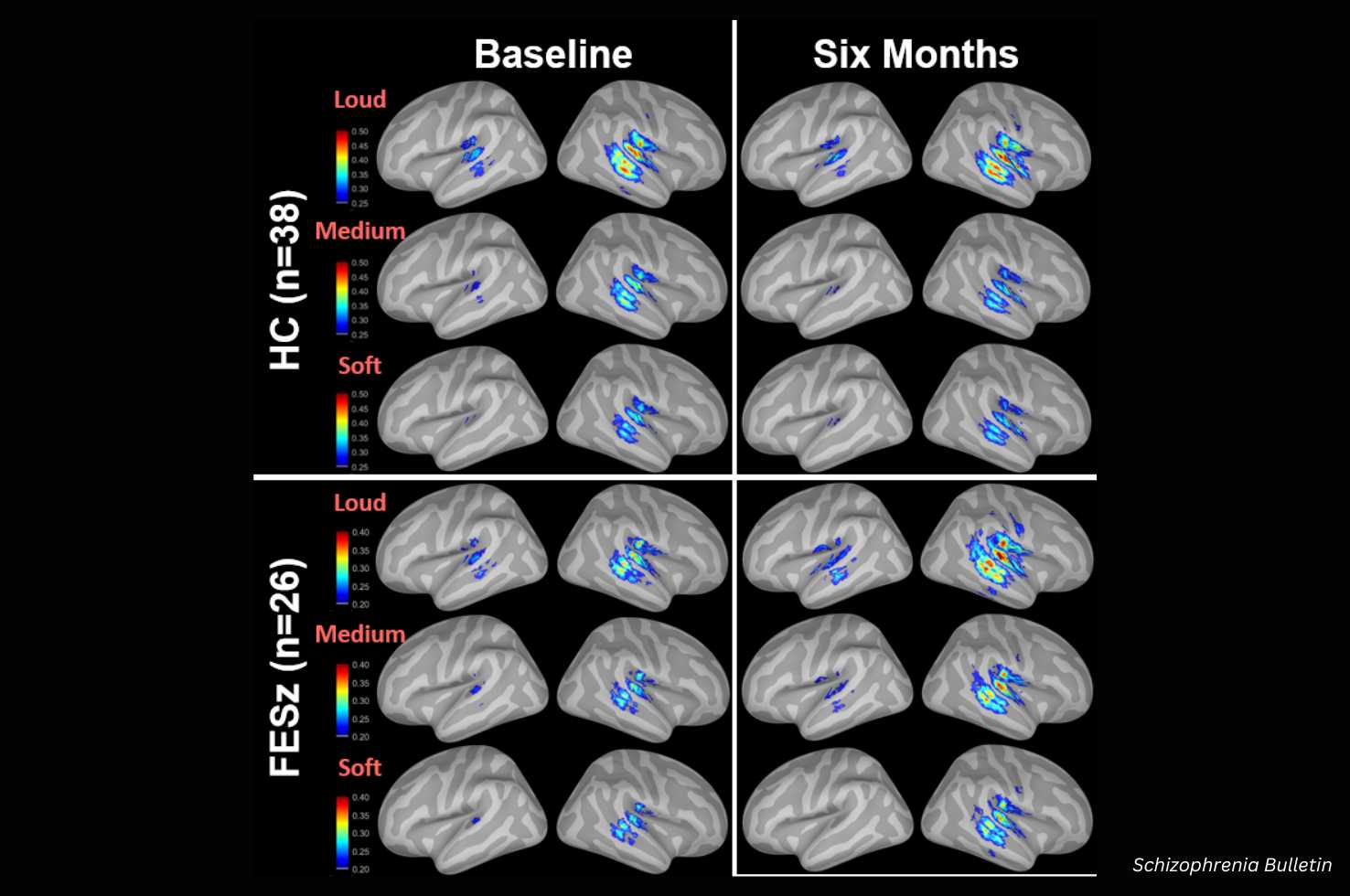Schizophrenia Bulletin: Longitudinal Investigation of Auditory Dynamic Range Deficits in Early Psychosis and its Relationship to Negative Symptoms

Negative symptoms of schizophrenia—including apathy, anhedonia, and asociality, as well as blunted affect and alogia—are present during early stages of the disorder, and contribute to marked declines in social and occupational functioning. Few therapeutic options ameliorate negative symptoms, and much remains unknown regarding their neurobiological origins.
To improve our understanding of the pathophysiology of negative symptoms in schizophrenia and its longitudinal progression, investigators including Alfredo Sklar, MD, PhD (Assistant Professor of Psychiatry); Brian Coffman, PhD (Research Assistant Professor of Psychiatry); and Dean Salisbury, PhD (Professor of Psychiatry), from Pitt Psychiatry, assessed changes in auditory cortex dynamic range—the scaling of neurophysiological responses to changes in stimulus intensity—over a six-month period during early-stage psychotic illness. The scientists used magnetoencephalography during binaural presentation of tones in 26 individuals with first-episode psychosis and 38 unaffected comparison subjects.
“While disruptions in auditory processing have been well-documented in schizophrenia, the sensitivity of the auditory cortex to variations in stimulus intensity remained understudied. Given the importance of fluctuations in tone and intensity to emotional communication in spoken language, we felt this line of investigation would provide valuable insights into debilitating social deficits observed in schizophrenia,” said Dr. Sklar, the study’s first author.
The investigators found that individuals with first-episode psychosis exhibited a blunted response to increasing tone intensity relative to the unaffected comparison group. While this deficit did not change over time at the group level, recovery of right hemisphere auditory cortex dynamic among individuals with first-episode psychosis was associated with reduced negative symptoms at follow-up. Diminished dynamic range was also associated with poorer community functioning and cognitive performance at baseline and increased negative symptoms at baseline and follow-up.
“When individuals first experience psychosis, their auditory system does not track sound intensity well, so everything may seem muted. Not only do sounds seems softer, but decoding the subtle cues in language is likely harder. Auditory dynamic range improves in individuals that get better in the first year of treatment, which suggests that directly treating auditory processing may help improve poor social functioning in early psychosis,” said Dr. Salisbury, senior author of the study.
Longitudinal Investigation of Auditory Dynamic Range Deficits in Early Psychosis and its Relationship to Negative Symptoms
Sklar AL, Matinrazm S, Ren X, Chlpka L, Curtis M, Coffman BA, Salisbury DF.
Schizophrenia Bulletin, Volume 49, Issue 6, November 2023, Pages 1508–1517, https://doi.org/10.1093/schbul/sbad072
